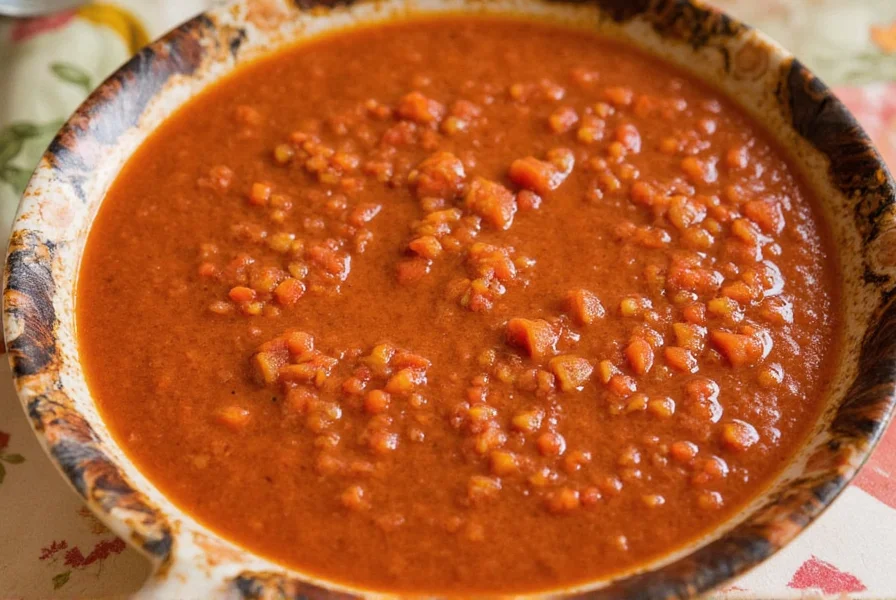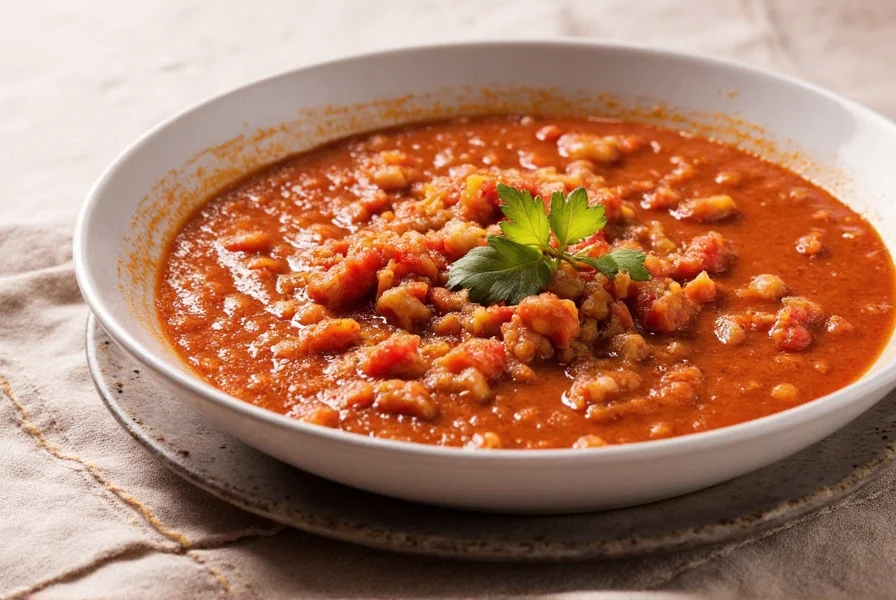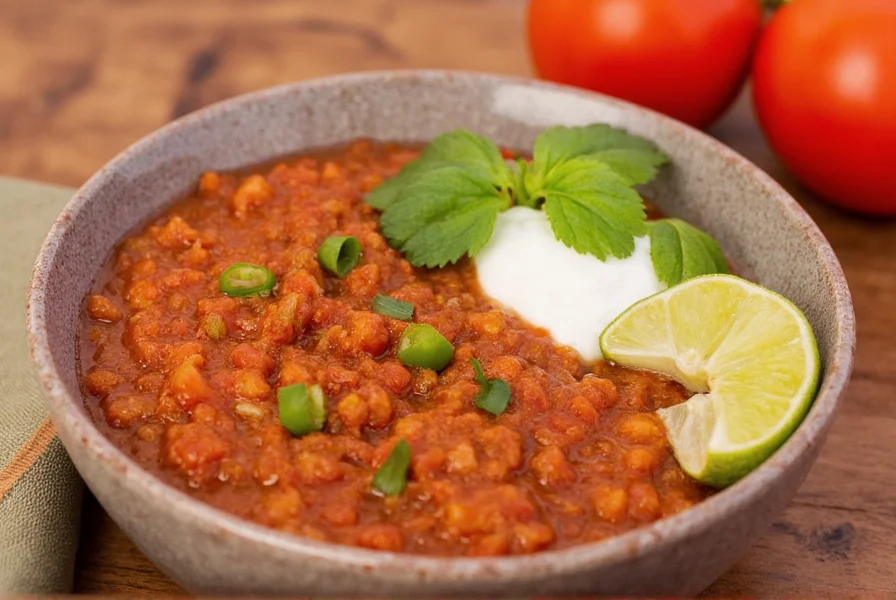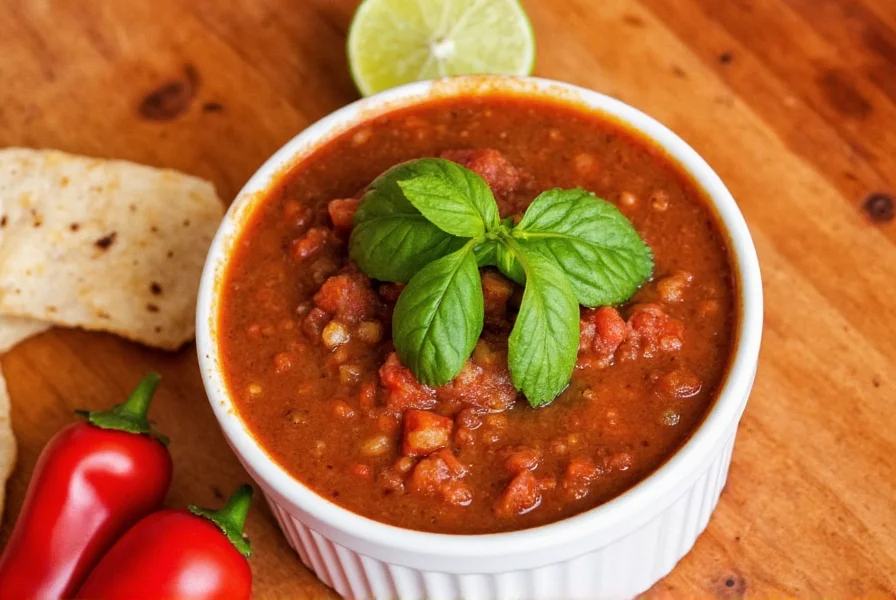Table of Contents
What Is Sofrito?
Sofrito is a fundamental ingredient in many cuisines, especially those with deep roots in Spanish, Latin American, and Caribbean cooking. It’s a rich, aromatic sauce or paste made from a blend of vegetables, herbs, and spices that are slowly cooked together to develop intense flavor. While the exact ingredients can vary by region, the goal is always the same: to create a base that adds depth and complexity to dishes like stews, rice, soups, and grilled meats.
The definition of sofrito can be expanded as follows: it's a foundational mixture used in cooking to enhance the flavor of other ingredients. In some cultures, it's more than just a sauce—it's the heart of a dish. So if you're looking to elevate your spice game, understanding what sofrito is and how to use it is essential.

Sofrito in Different Cuisines
Sofrito is not one-size-fits-all. Its preparation varies widely depending on where you are in the world. Here are some examples:
- Spanish Sofrito: Typically includes tomatoes, onions, garlic, bell peppers, and olive oil. It’s often used in paella and seafood dishes.
- Latin American Sofrito: In countries like Puerto Rico, Cuba, and the Dominican Republic, sofrito often features green peppers, garlic, onions, and a touch of oregano or cumin.
- Caribbean Sofrito: Sometimes called “recaito,” this version might include thyme, scotch bonnet peppers, and even coconut milk.
While the base remains similar, the regional twists make each variation unique. Whether you’re making a classic Spanish paella or a spicy Caribbean stew, knowing the local take on sofrito can transform your dish.

Practical Tips for Using Sofrito
Here are some practical tips to help you get the most out of sofrito in your cooking:
- Use it as a base: Add a spoonful of sofrito to soups, stews, or rice dishes for instant flavor boost.
- Freeze it: Make a big batch and freeze portions in small containers. You’ll have ready-made flavor on hand whenever you need it.
- Experiment with heat: If you like spicy food, add a few dashes of hot sauce or chili flakes to your homemade sofrito.
- Pair it with protein: Use it as a marinade or spread for chicken, fish, or pork.
- Enhance your sauces: Mix it into your favorite sauces—like ketchup or mustard—for an extra kick.
Whether you're a seasoned chef or just starting out, these tips will help you unlock the full potential of this flavorful staple.

Sofrito vs. Other Sauces
Sofrito is often confused with other sauces, but it has distinct characteristics that set it apart. Let’s compare it to a few popular alternatives:
| Sofrito | Pesto | Salsa | Ketchup |
|---|---|---|---|
| Rich, slow-cooked vegetable and herb base | Green paste made from basil, garlic, and olive oil | Fresh tomato-based sauce with herbs and spices | Tomato-based condiment with vinegar and sugar |
| Used as a base for many dishes | Usually served as a dip or spread | Can be eaten on its own or with tortilla chips | Commonly used on burgers and fries |
| Strong, complex flavor | Herby and fresh | Variety of heat levels | Generally mild and sweet |
As you can see, while all these sauces have their place in the kitchen, sofrito stands out for its versatility and depth of flavor.

How to Make Your Own Sofrito
Making your own sofrito at home is easier than you might think. Here’s a simple recipe to get you started:
- Ingredients:
- 1 onion, chopped
- 3 cloves garlic, minced
- 1 red bell pepper, diced
- 1 green bell pepper, diced
- 1 cup tomatoes, diced
- 2 tablespoons olive oil
- 1 teaspoon salt
- 1/2 teaspoon ground cumin (optional)
- 1/2 teaspoon dried oregano (optional)
- Instructions:
- Heat the olive oil in a large skillet over medium heat.
- Add the onions and garlic, sauté until softened (about 5 minutes).
- Add the bell peppers and cook for another 5 minutes.
- Stir in the tomatoes, salt, and optional spices. Cook for 10–15 minutes, stirring occasionally, until the mixture thickens.
- Let cool slightly before blending into a smooth paste. Store in an airtight container in the refrigerator for up to a week, or freeze for longer storage.
Once you try this homemade version, you may never go back to store-bought again!

Buying Guide for Sofrito Products
If you prefer convenience, there are many store-bought sofrito products available. Here’s a guide to help you choose the best one for your needs:
Top Sofrito Brands
- Casa de Campo Sofrito
- Features: Made with fresh tomatoes, onions, garlic, and a hint of cumin.
- Advantages: Great for traditional Spanish and Latin American dishes.
- Use Cases: Ideal for paella, stews, and meat marinades.
- Target Audience: Home cooks who want authentic flavor without the hassle.
- Suitable Occasions: Weeknight dinners, family gatherings, or holiday meals.
- La Cocina Sofrito
- Features: Includes green peppers, garlic, and a bit of heat.
- Advantages: Versatile and easy to use in a variety of recipes.
- Use Cases: Perfect for Caribbean-inspired dishes, rice, and beans.
- Target Audience: Enthusiasts of spicy and bold flavors.
- Suitable Occasions: Casual dinners, potlucks, or outdoor grilling.
- San Juan Sofrito
- Features: A blend of tomatoes, onions, and aromatic herbs.
- Advantages: Adds a deep, savory flavor to any dish.
- Use Cases: Excellent for soups, braises, and rice dishes.
- Target Audience: People who love robust, traditional flavors.
- Suitable Occasions: Comfort food nights, holiday feasts, or special occasions.
When choosing a product, look for ones that don’t contain excessive preservatives or artificial ingredients. Opt for brands that highlight natural, high-quality components for the best results.

Conclusion
In summary, sofrito is more than just a sauce—it’s a flavor powerhouse that can elevate any dish. From its origins in Spanish and Latin American kitchens to its modern-day adaptations, sofrito has proven its versatility and importance in the world of spice and cooking. Whether you make your own or choose a store-bought version, incorporating it into your meals will bring a new level of depth and richness to your cooking.
So next time you’re in the kitchen, consider giving your recipes a little sofrito boost. It’s the perfect way to add that extra layer of flavor that makes your dish unforgettable. And remember, the definition of sofrito isn’t just about what it is—it’s about how it transforms your cooking experience.












 浙公网安备
33010002000092号
浙公网安备
33010002000092号 浙B2-20120091-4
浙B2-20120091-4